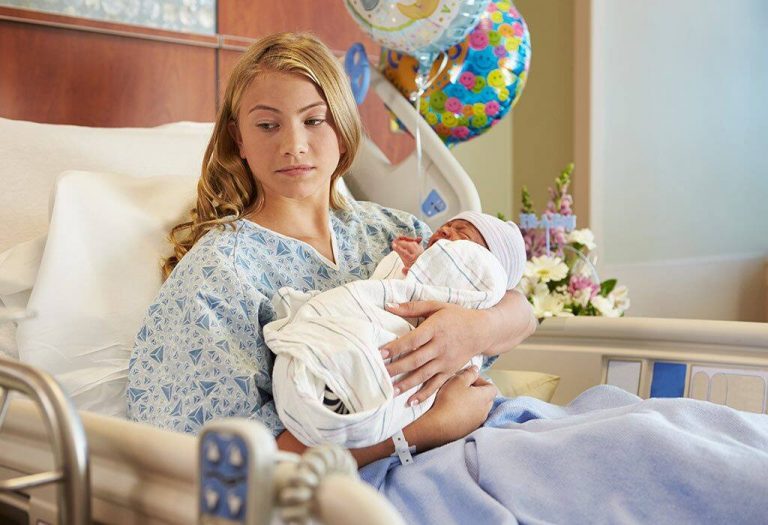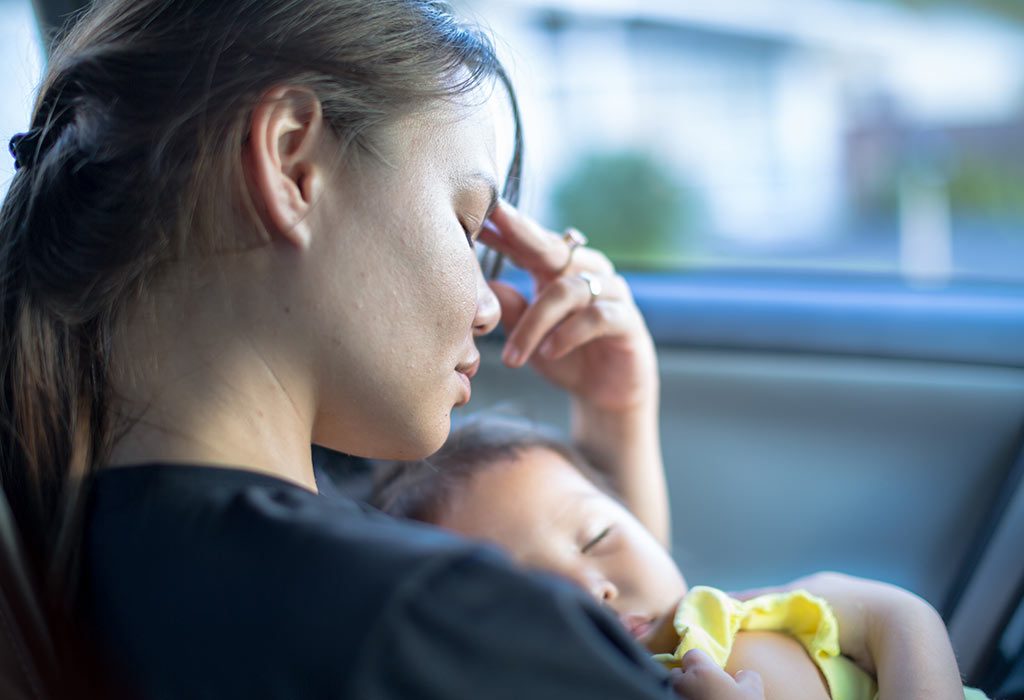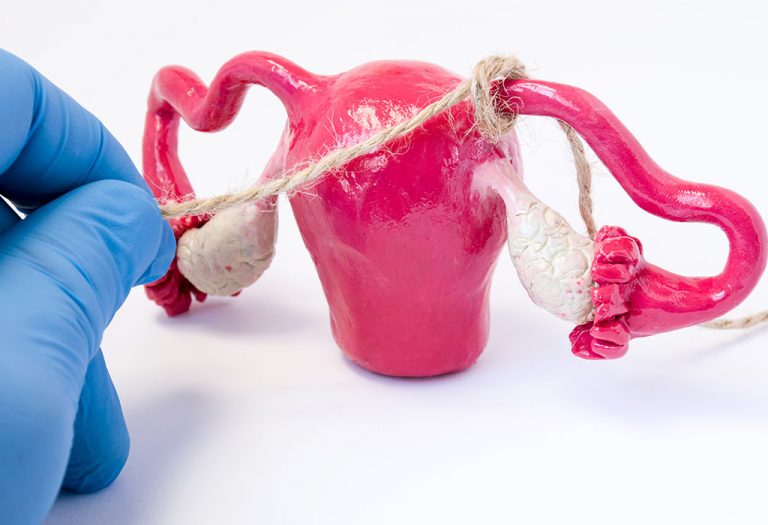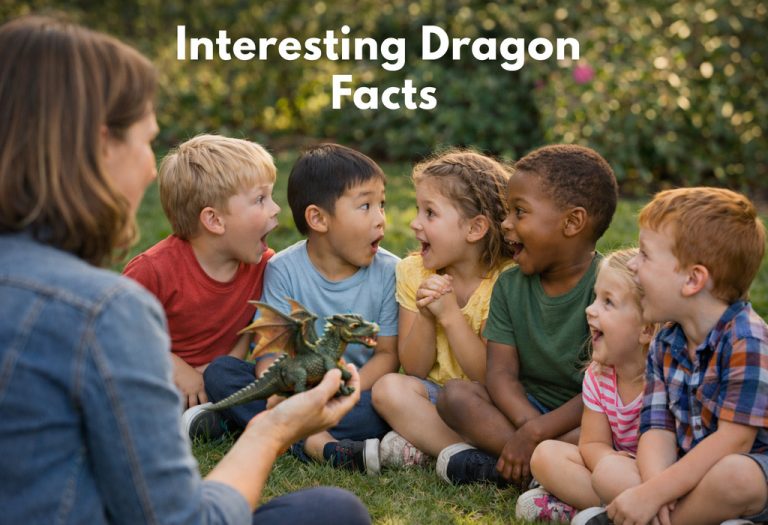Postpartum Hormone Changes – Causes and Ways to Restore It

Childbirth brings in a lot of new changes. It completely alters the life of the parents, as their life will now revolve around their new baby. Childbirth also changes the hormonal balance in the mother’s body. This causes several issues in the new mom, such as mood swings, hair loss, insomnia, and more. The body takes a few months to recuperate from childbirth and get back to normal. During this time, hormonal imbalances can cause a variety of symptoms in the mother, ranging from inconvenient to very serious. Keep reading to learn the causes behind hormonal imbalance after pregnancy and the most effective ways to restore balance for a healthier, happier recovery!
Causes of Hormonal Imbalance Post Pregnancy
Hormonal imbalance is caused by the sudden change in levels of the hormones progesterone and oestrogen in the new mother’s body. During pregnancy, the progesterone is at a high level in the body. After childbirth, the progesterone level drops suddenly, causing several unpleasant symptoms such as menstrual issues, recurring infections, and tiredness. A woman’s body takes six to eight weeks to recover from childbirth and restore hormonal balance. For women who are breastfeeding, it takes longer for the hormonal balance to be restored (1). This hormonal imbalance also affects the normal functioning of the thyroid gland and can cause hypothyroidism and inflammation of the thyroid gland (thyroiditis).
Causes of Oestrogen Dominance After Delivery
Oestrogen and progesterone are important hormones that play an important role in pregnancy and childbirth. After childbirth, the placenta is removed. The placenta is a major contributor to producing progesterone. As a result, progesterone levels in the body drop drastically. This causes oestrogen dominance, meaning a high level of the hormone oestrogen in the body. Oestrogen dominance can affect the normal functioning of the thyroid and adrenal glands. This can cause thyroiditis or inflammation of the thyroid glands, and hypothyroidism or underactive thyroid production.
Signs of Hormonal Imbalance After Pregnancy
If you have several of these symptoms after childbirth, it could be an indication of hormonal imbalance in your body (2):
1. Loss of Sleep
Mothers who have hormonal imbalance could suffer from insomnia, which is the inability to sleep through the night.
2. Anxiety and Mood Swings
Hormonal imbalance can affect your emotional state and cause erratic mood swings and anxiety. This could be because of thyroid problems caused by the hormonal imbalance (3).
3. Fatigue
If you feel extremely tired all the time post-delivery, it could be a sign of hormonal imbalance. It is normal to feel tired during recovery from childbirth, and the attention required by your new baby can also be overwhelming. However, if you feel constantly exhausted, you should tell your doctor about it so that he can determine if the exhaustion is being caused by hormonal imbalance.
4. Unable to Lose Weight, Baby Blues, and Postpartum Depression
The hormonal imbalance in the body makes it very challenging to lose weight post-delivery. Aside from this, new mothers often feel a case of ‘baby-blues’ which are feelings of sadness for several days after the baby is born. Mothers may be emotional and cry suddenly. They can be irritable and have trouble making decisions or sleeping. They may also feel overwhelmed by changes in their lives or that they are not caring well for their babies. Another symptom of hormonal imbalance is postpartum depression, which is much more serious than ‘baby-blues’ and is characterised by feelings of intense sadness or depression that last longer than a few weeks and do not go away (4).
5. Hair Loss
After the childbirth, you could experience hair loss due to the hormonal imbalance and thyroid problems. If you feel that the hair loss is unusually excessive, talk to your doctor about hormonal imbalance and remedies for it (5).
6. Recurring Infections
If you suffer from recurring infections like bladder or urinary tract infection, uterine or kidney infections, it is an indication of hormonal imbalance in the body. Hormonal problems can compromise your immunity and make you vulnerable to disease-causing bacteria, resulting in repeated infections.
7. Menstrual Problems
Menstrual problems such as heavy bleeding or painful cramps could also be due to hormonal imbalance and oestrogen dominance. Some women may also have very light bleeding during their periods after childbirth.
Ways to Restore Hormonal Balance After Pregnancy
Now, you might be wondering, how to balance hormones after pregnancy? Here are some simple and effective ways to help your body restore its natural hormonal balance after delivery
1. Stay Away From Harmful Substances
Nicotine, alcohol and caffeine are three substances that can worsen the symptoms caused by hormonal imbalance after childbirth. Therefore, it is important to avoid drinking alcohol and smoking. Also, avoid caffeinated beverages like coffee and cola (6).
2. Maintain a Nutrient-Rich Diet
Eating a balanced diet rich in whole foods, healthy fats, and protein can help regulate hormone production. Include omega-3 fatty acids, leafy greens, and antioxidant-rich foods to support recovery.
3. Remember to Take Your Supplements
The body’s vitamin and mineral balance will also help to restore the hormonal balance. Hence, it is vital to take vitamin and mineral supplements daily after the birth of your child.
4. Avoid Soya Products
Postpartum hormones wreak havoc on your emotional state, causing mood swings. Soybeans are a rich source of protein, which is essential after delivery. However, they contain phytoestrogen, which is a kind of plant oestrogen. This can mimic the effects of human oestrogen in the body and aggravate the problems caused by oestrogen dominance. Hence, eat soy products in moderation after delivery (7).
5. Eat Egg Yolk
Egg yolk is a great source of B-complex vitamins such as B12 and B6. It is also rich in selenium, which is crucial for converting inactive thyroid hormone to active thyroid hormone. Thus, consuming egg yolk can help in restoring hormonal balance in the body (8).
6. Make Sure You Are Getting Some Sunshine
Vitamin D is essential for the body to maintain hormonal balance. Deficiency of Vitamin D causes an increase in the level of parathyroid hormone, which will worsen the symptoms of hormonal imbalance. So, make sure you get some sunshine every day, as your body requires sunlight to synthesise Vitamin D (9).
7. Exercise Regularly
Regular exercise helps combat hormonal imbalance. It also causes the release of endorphins in your body that improve your mood and reduce stress. Walking in a park or in a natural area is a great way to exercise and feel relaxed (5).
8. Increase Your Fibre Intake
Dietary fibre helps in eliminating oestrogen in the body. Including food that contains dietary fibre such as greens, lentils, peas, broccoli, and Brussels sprouts can help restore your body’s hormonal balance by getting rid of excessive oestrogen.
9. Avoid Simple Carbohydrates
Simple carbs such as maida, white bread, pasta, rice, sugary sweets etc. can be digested easily by your body and contribute to weight gain and high blood sugar. This worsens the hormonal imbalance in your body. Stick to whole grains or unrefined complex carbohydrates like brown rice, brown bread, sweet potatoes, etc. to help your body restore hormonal balance (10).
10. Increase Magnesium Intake
Magnesium plays a crucial role in stress management, sleep quality, and hormone regulation. Incorporate magnesium-rich foods like nuts, seeds, and leafy greens, or consider a supplement if needed.
11. Stay Hydrated and Support Gut Health
Drinking plenty of water and consuming probiotics can aid digestion and improve hormone regulation. A healthy gut microbiome plays a crucial role in estrogen metabolism.
12. Do Not Consume Foods High in Polyunsaturated Fatty Acids (PUFAs)
PUFAs can affect your endocrine glands, causing the symptoms of hormonal imbalance to worsen. Hence, avoid foods containing PUFAs such as margarine, safflower oil, peanut oil etc. after delivery.
13. Try Yoga
Yoga has been found to relieve stress and relax both your mind and body. It also helps in relieving anxiety and insomnia. Yoga will help in restoring your body’s hormonal balance. If you are not familiar with yoga, learn from a trained yoga expert. Do not attempt to do yoga on your own, as you may end up injuring yourself.
14. Raspberry Leaf Tea
Red Raspberry leaf is known for its antioxidant and restorative properties. It contains many vitamins and minerals that help in regulating hormones. Drinking red raspberry leaf tea can help resolve problems of the reproductive system.
15. Get Plenty of Sleep
Sleep deprivation increases the problems caused by hormonal imbalance after childbirth. Lack of sleep also negatively affects the mother-baby bonding. So, it is necessary to get as much sleep as you can. Get help from family members or a nanny for baby care and catch up on your sleep.
16. Try Acupuncture
Acupuncture can help regulate hormonal changes after birth by reducing stress, improving blood circulation, and supporting the endocrine system. Many women find it beneficial for postpartum recovery and hormonal balance.
17. Avoid Birth Control Pills
Hormonal birth control can impact postpartum hormone levels. If you’re considering contraception, consult your healthcare provider to choose an option that aligns with your postpartum hormonal needs.
FAQs
1. How long does it take for hormones to balance after childbirth?
Every woman’s body is different, but it typically takes a few months for hormones to stabilise. For some, it may take up to a year, especially if breastfeeding. Lifestyle, diet, and stress levels also impact the speed of recovery.
2. How does stress impact postpartum hormones?
Chronic stress raises cortisol levels, which can further disrupt hormonal balance and lead to fatigue, anxiety, and poor sleep. Managing stress through meditation, yoga, deep breathing, or simply taking breaks can help you recover.
If you have just had a baby and are suffering from symptoms like hair loss, recurring infections, mood swings, anxiety, insomnia, sadness or depression, you should consult your doctor immediately to determine whether these symptoms are being caused by hormonal changes post pregnancy or oestrogen dominance. Do not include new foods or alternative medicines in your diet without consulting your doctor first. This is needed if you are breastfeeding your baby. Whatever you consume can be passed on to the baby through breast milk. It is, therefore, important to make sure you are eating only healthy and nutritious food. Try the tips suggested in this article to restore postnatal hormones balance in your body.
References/Resources:
1. Hackensack Meridian Health – What Happens to Your Hormones After Birth?
2. Cleveland Clinic – Hormonal Imbalance
3. UCLA Health – 7 signs of a hormonal imbalance — and what to do about it
4. PubMed – Hormonal changes in the postpartum and implications for postpartum depression
6. National Institute on Alcohol Abuse and Alcoholism – Alcohol’s Effects on Health
7. Harvard Health Publishing – Confused about eating soy?
8. North Carolina Egg Association – YOLKS VS WHITES
9. Health and Science – Vitamin D lowers estrogen levels and your risk of breast cancer
10. Women in Balance Institute – Causes of Hormone Imbalance
Also Read:
Vagina After Pregnancy
Postpartum Skincare Guide
Body Changes after Pregnancy
Stomach Pain after Pregnancy
Ways to Cope with Postpartum Fatigue
Was This Article Helpful?
Parenting is a huge responsibility, for you as a caregiver, but also for us as a parenting content platform. We understand that and take our responsibility of creating credible content seriously. FirstCry Parenting articles are written and published only after extensive research using factually sound references to deliver quality content that is accurate, validated by experts, and completely reliable. To understand how we go about creating content that is credible, read our editorial policy here.




































